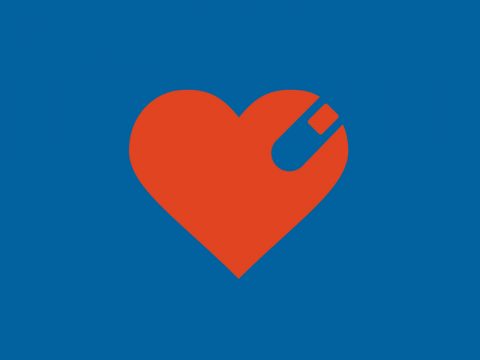
Brainwashing works. It’s also really hard to unlearn. It’s amazing how many conversations I have with potential new clients that are either worried or excited about their cardiac health based on cholesterol levels. The cholesterol-heart disease connection is about as relevant today as paying for AOL. That’s an even harder conversation to have with someone.
But I’m guessing you’re savvy. You are all about the risks associated with elevated homocysteine and CRP in relation to heart disease. Instead I want to introduce you to two other cardiac markers to consider tracking in relation to the #1 cause of death in America.
Lp-PLA2
Lp-PLA2 stands for lipoprotein associated phospholipase 2. Who cares, right? What is interesting about this marker is that it gives major insight into the fear of heart disease that the cholesterol model perpetuated…atherosclerosis.
Lp-PLA2 measures disease activity within the artery wall below the collagen or calcified cap due to the activation of macrophages. Macrophages are specific cells that come from monocytes, which are part of the makeup of your white blood cells you often see on labs. In other words, it’s an immune response. When you hear inflammation, you should automatically think immune response. Monocytes help clean up inflammatory cell damage as well as debris from destroyed microorganisms. They play a major role in tissue repair.
Lp-PLA2 are also produced by foam cells within the intima of the artery. Foam cells are created from macrophages. How are foam cells created from macrophages? By help from a powerful hormone called insulin, my favorite. What do foam cells do? They accumulate fatty deposits. You will see foam cells in cardiovascular disease but you will also see it in neurodegeneration like Alzheimer’s. The processes aren’t that much different, it’s just expressed differently based on the individual.
When you hear atherosclerosis or Alzheimer’s, you should think insulin and insulin resistance…and inflammation.
What’s the fastest way to raise blood sugars and resultant insulin load? Follow the approved, low fat, high carb endorsed diet by the American Heart Association. When you take the fat away from food, you take the flavor away. In order to sell these foods, they have to taste good, so manufacturers load them up with many forms of sugar disguised by many different names. Buyer be savvy.
MPO
The second cardiac marker to be on your radar is MPO. MPO stands for Myeloperoxidase. Again, who cares. But just like Lp-PLA2, it gives major insight into artery wall damage. MPO is also released by macrophages. MPO mediates the vascular inflammation that spreads plaque formation.
MPO enhances cardiovascular risk prediction when used independently or alongside standard biomarker testing such as CRP. Elevated MPO levels predict the risk of heart disease in subgroups otherwise associated with low risk.
MPO levels are not likely to be elevated due to chronic infections or rheumatologic disorders due to the fact that free MPO in the blood is a specific marker of vascular inflammation and vulnerable plaque or erosions.
With that said, don’t think these are only cardiac risk factors. If one organ is in trouble, they all are. If there is enough damage occurring in the cardiovascular system to release these markers, you have to look up stream to figure out where the damage is stemming. Sugar load is going to be an obvious one but damage could be occurring due to overtraining like marathoners and extreme athletes. There could be autoimmune processes occurring that are damaging connective and vascular tissue. There could be methylation problems, creating a backup in the homocysteine cascade.
This is why you will rarely ever see blanket recommendations in my posts. It’s not that I’m trying to hook you. It’s more that I don’t know what’s going on with you or how to treat your ailment without the necessary context. You could line up 10 people with elevated Lp-PLA2 or MPO and all 10 had a different path of development.
If I can get you to stop thinking about symptom management and start thinking about system optimization, you will have much better outcomes. But if you need help, you know how to find me.


0 Comments